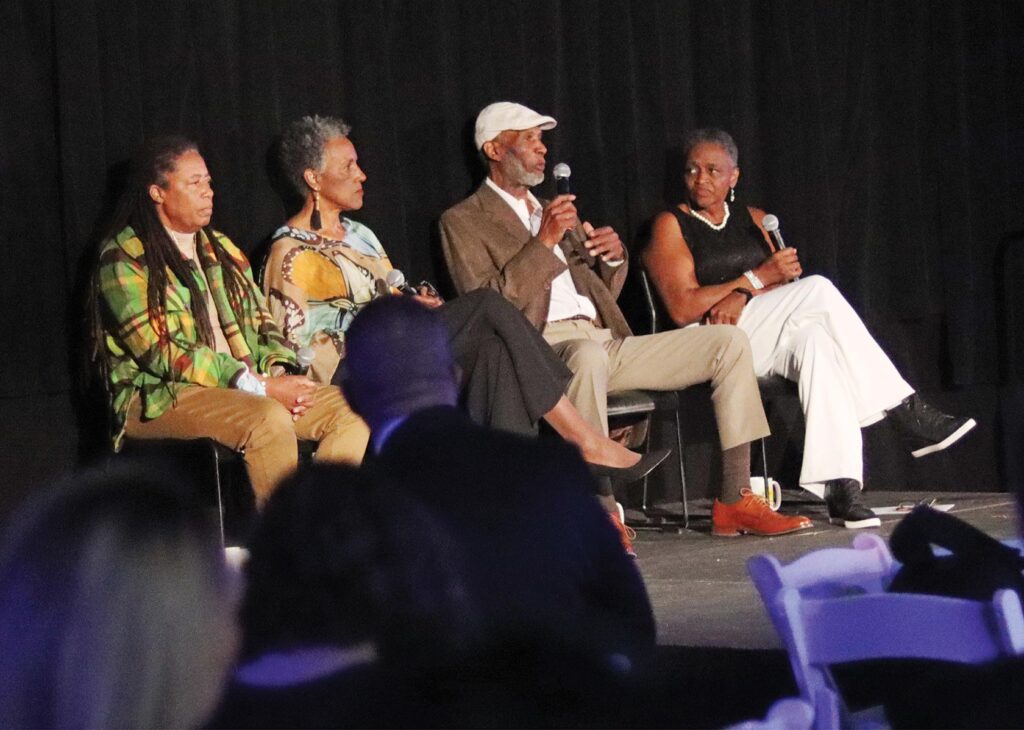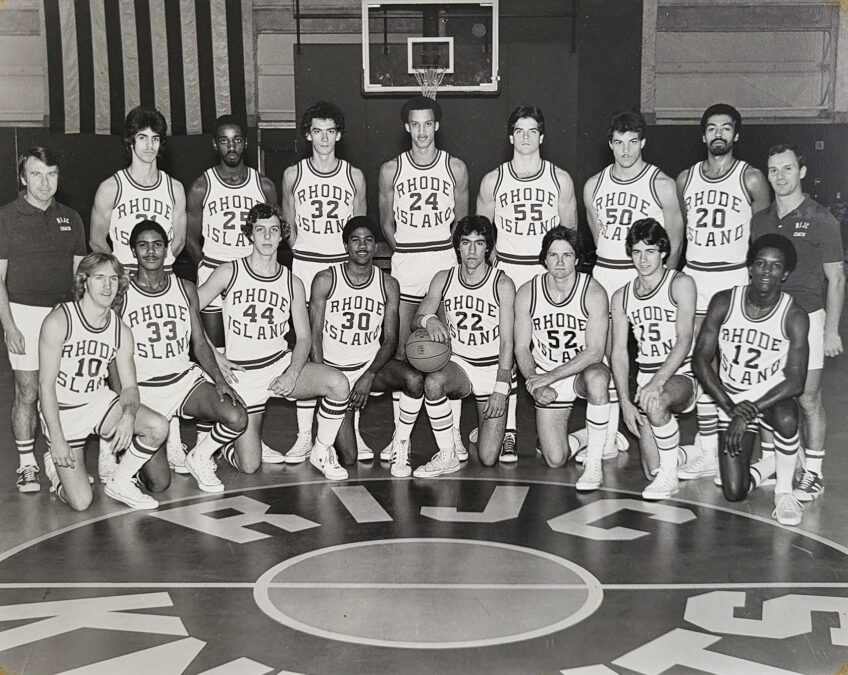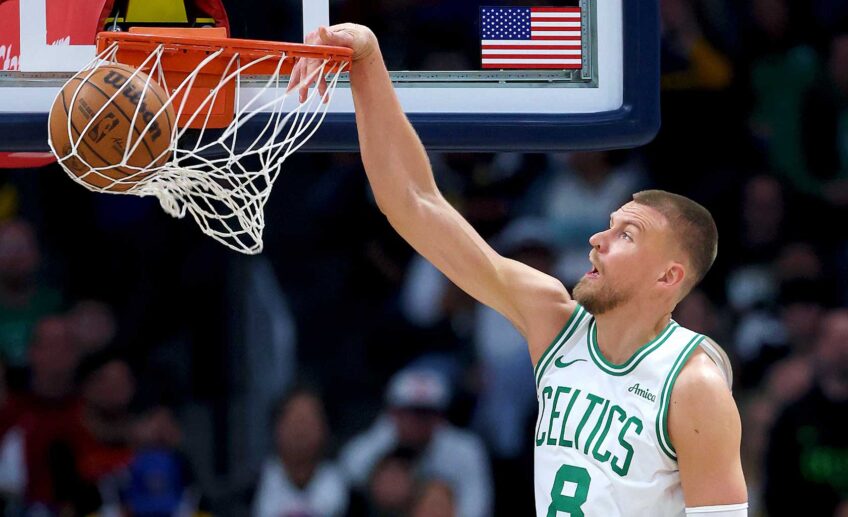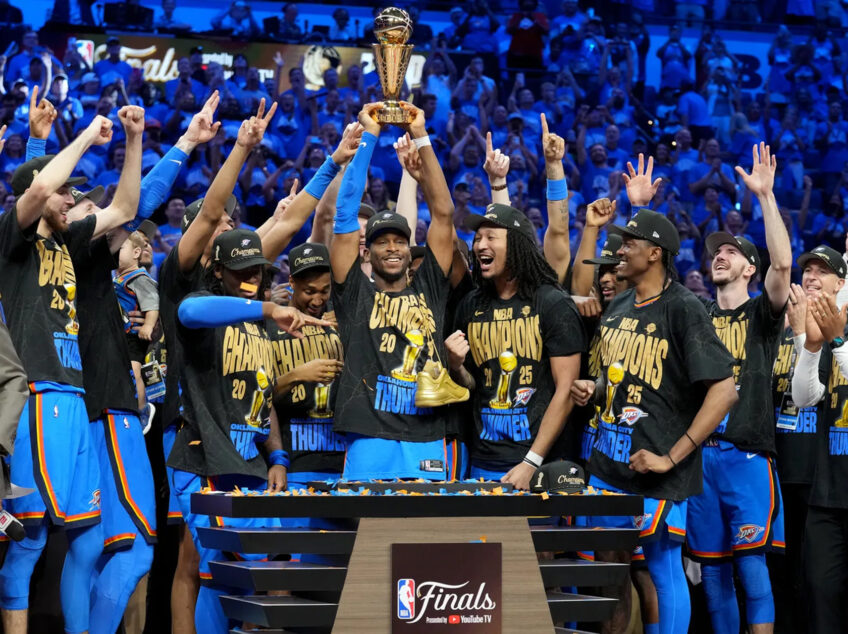
Tennis is concluding an era: “Serena’s Reign,” as Sportsmen’s Tennis and Enrichment Center CEO Toni Wiley told the Banner last month.
“Serena and Venus, what they’ve done for tennis cannot be overstated.”
Over time, the Williams sisters’ legacy — improving the sport’s stubborn lack of diversity — will fall to another generation of Black stars.
American professionals are poised to shoulder that responsibility.
One, Sloane Stephens, has trained at Sportsmen’s since she settled in the Boston area. Her mother, Sybil, swam her way into Boston University’s Hall of Fame. Stephens’ father, John, was a Pro-Bowl Patriots half-back.
Many Black women are highly ranked: Coco Gauff, Taylor Townsend, Alycia Parks, Asia Muhammad, Sachia Vickery, Robin Montgomery, Hailey Baptiste and Robin Anderson. For the men, Frances Tiafoe is 11th globally; followed by Christopher Eubanks and Michael Mmoh.

Spectators view American Tennis Association’s and Black Tennis Pioneers exhibit. PHOTO: PETER C. ROBY
However, today’s ruthless tennis business discourages broader participation, at least according to a panel of trailblazing Black professionals at Sportsmen’s “Breaking the Barriers” fundraiser Saturday.
“There’s been a break in the pipeline: we have a hard time getting kids to transition” from learning to competition, said Wiley, the moderator.
“Quite frankly, junior tennis is awful,” explained panelist Leslie Allen. “And junior tennis parents are even worse than awful.”
Allen’s 1981 singles title in Detroit was, for a Black woman, only preceded by Althea Gibson’s victories of the 1950s.
The junior circuit Allen described is particularly daunting for new Black players: “They get their behinds whipped and [are] told, ‘Okay, you can go play in a consolation back draw’ after you had some microaggressions getting in the place.”
Unsurprisingly, few persevere.
Allen identified a problematic sentiment, that “if you are not an elite player, there’s no point. If you are not striving to be a pro, there’s no point.”
“Tennis has lost its focus,” said panelist Art Carrington, “because it’s about physical education.”
“High-performance tennis is what’s killing tennis.”
Carrington’s comments were rooted in over a century of tennis history. Sportsmen’s displayed his collection of clippings and memorabilia in a full-court multimedia gallery on Saturday.
Carrington’s research is publicly available in his book, “Black Tennis, An Archival Collection: 1890 – 1962.” He sold signed copies on Sunday.
“Unfortunately, that’s why I think that Osaka and Coco, many of the young players, have trouble because they don’t come from the tennis community; they don’t come from the Sportsmen’s environment,” he said.
Sportsmen’s is an exception to the “high-performance” game the panel critiqued. As a mission-driven non-profit, Sportsmen’s prioritizes sending kids to school.
“We really want tennis to be that vehicle — as our founders wanted it to be — that would open up doors of opportunity for education,” said Wiley. Her resume includes roles with the ATA and USTA-New England.
Carrington credited community clubs, like Sportsmen’s, with creating opportunity.
“It’s not about my story,” he summarized. “It’s about the opportunity that other people created for me through forming these tennis clubs in our community, going back as early as 1890.”
Learning tennis at a small, all-Black club in New Jersey, Carrington saw tennis as a “Black game.” He had a Black coach and was only introduced to the USLTA’s “white tournaments” after college.
For Kim Sands, a panelist, the learning experience could have hardly differed more.
At first, “I thought I was the only Black person in America playing tennis,” said Sands. Now retired, Sands runs youth clinics in Miami.
Speaking to Carrington’s sentiments about Black professionals’ ostracization, she said, “We all caught hell.”
Leslie Allen reiterated tennis’ history of racial animus. She learned from her mother, an ATA tour player and “champion in her own right.”
“Sitting in the car, listening to grown-folks talk, I heard about the horror stories of top players” playing in the USLTA’s “white tournament,” Allen said.
Moderating the retrospective discussion, Wiley asked about maintaining Sportsmen’s historically close-knit community. Once a redoubt against racial exclusion, community clubs like Sportsmen’s serve a less-uniform population today.
“We would do it anyways,” said Wiley of her center’s history embracing Black Bostonians, “but we needed to be that source of security. And now, it’s a different environment out there.”
She outlined two groups: youth in developmental tennis who “look like Boston,” and a competitive cohort from across Eastern Massachusetts. Attracted to Sportsmen’s stellar facility, the latter are predominantly white.
Wiley worried about building camaraderie.
Answering, Allen proposed grouping young people of all skill levels together; intermingling kids to learn from one another. She cited school reading groups as a model.
“What we have here at Sportsmen’s is Black excellence, but everybody is welcome,” she said.
Ultimately, each panelist recalled tennis as a source of life-skills, healthy habits, and fitness.
Sportsmen’s Frank Williams, a board-member, echoed Allen’s welcoming attitude afterwards: “Boston has changed quite a bit; it’s become very diverse. Our tennis club is also diverse. Black excellence is one thing; but just excellence, period.”






